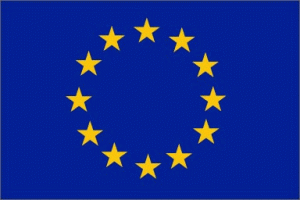 Today, the European Parliament Committee on Civil Liberties, Justice, and Home Affairs held a debate on ACTA [Webcast]. Tomorrow, the debate will move to the Committee on International Trade [Webcast].
Today, the European Parliament Committee on Civil Liberties, Justice, and Home Affairs held a debate on ACTA [Webcast]. Tomorrow, the debate will move to the Committee on International Trade [Webcast].
In advance, civil society groups have issued the following statements and open letters to Parliament:
Ante Wessells, Foundation for a Free Information Infrastructure [Full letter to Parliament]
The enforcement of intellectual property rights has reached such an intrusive level that safeguarding fundamental rights is essential for citizens, consumers, artists, start up companies, competitors and innovators. ACTA is anything but robust with regards to fundamental rights. ACTA will also create a non transparent Committee. NGOs and academics raised serious concerns regarding the impact ACTA will have on fundamental rights. For our members the heightened damages based on retail price, the intrusive injunctions and criminal measures are most worrisome.
Jérémie Zimmermann, La Quadrature du Net. [Full statement and letter to Committee]
The EU Parliament must face its political responsibility on ACTA. Now is not the time for technocratic manoeuvres aimed at stalling the ongoing democratic debate on ACTA’s dangers. The Parliament must exert its prerogatives by moving toward a final vote and protecting the public interest by rejecting ACTA. Dozens of NGOs, legal scholars, independent experts and public bodies have already established that ACTA is illegitimate and will harm fundamental rights as well as the economy, in the EU and worldwide, and no procedural delay will change a thing about this fact. After the impressive protests which took place all across Europe, citizens must again step in the debate and urge for a swift rejection of ACTA.
Joint statement by HAI Europe, Oxfam, MSF, and the Trans Atlantic Consumer Dialogue:
The negative impact ACTA would have on public health, has now been flagged innumerable times by NGOs, the European Parliament, the Special Rapporteur for the Right to Health, and others. Political and development grounds to reject ACTA for its impact on access to medicines remain unaltered and will not be affected by any ECJ ruling. We therefore call upon each member of the European Parliament to carefully consider the potential impact of ACTA on public health, and urge them to take their responsibility and reject ACTA’s ratification. Waiting for the ECJ referral’s outcome will not solve ACTA’s political problems.




